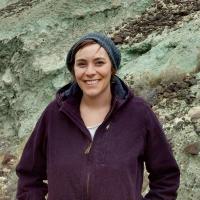Join Emma Pelton, Senior Conservation Biologist, and Angela Laws, Endangered Species Conservation Biologist with Xerces, to learn more about the exciting work Xerces is doing to protect western monarchs in California. We will talk about the status of western monarchs, including information from the recent overwintering counts, and then discuss the work Xerces is doing with partners around the state to create and protect monarch habitat in their overwintering and breeding grounds.
This webinar will be recorded and available on our YouTube channel. Closed Captioning will be available during this webinar.
Click here for more information and to register.

Emma Pelton
Senior Endangered Species Conservation Biologist, Western Monarch Lead - The Xerces Society
As the Xerces Society's western monarch lead, Emma works on the western population of monarch butterflies, including adaptive management of overwintering habitat in California and breeding habitat throughout the western U.S. Emma completed a master's degree in agroecology and entomology at the University of Wisconsin–Madison where her research focused on landscape ecology and an invasive fly that affects fruit crops. Previously, Emma worked at the Wisconsin Department of Natural Resources–Endangered Resources program as a biologist and on organic vegetable farms in southern Wisconsin.

Angela Laws
Endangered Species Conservation Biologist; Climate Change Lead - The Xerces Society
Based in Sacramento, California, Angela is working on habitat restoration for pollinators and monarch butterflies in the Central Valley. Her role at the Xerces Society also involves incorporating climate resiliency into pollinator restoration projects. Angela has over 15 years of experience studying arthropods in grassland habitats, including studies of how climate change can affect species interactions. She received a master's of science in ecology from Utah State University and a Ph.D. in biology from the University of Notre Dame.
